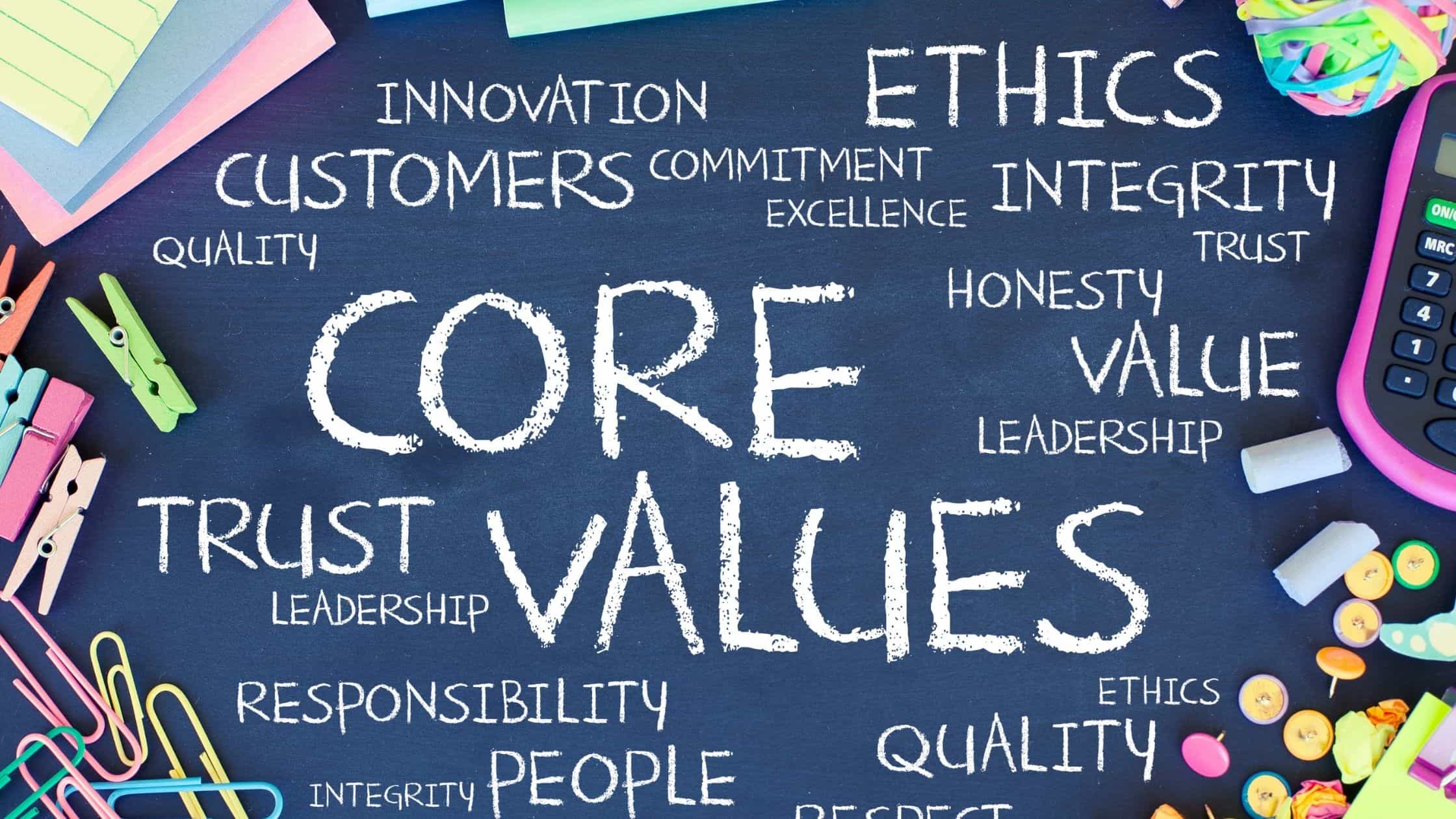The soul of any people-centric organization that transforms the customer experience is its corporate culture. Without deliberately designing the culture around the people, your efforts to improve the customer experience will fail. Culture is what people do when no one is looking. Core values guide what they do when no one is looking. They are the compass that guides their behavior and is the code for interacting with one another. But, if you don’t operationalize your core values, they amount to nothing more than fancy slogans and posters hanging on your office walls.
Core values are the pillars that support the culture. Therefore, you need to define, socialize, and operationalize your core values for your culture to take hold. Many leaders ask: How do I take our core values from nice sayings to demonstrated behaviors? This blog post will answer the question of how to operationalize your core values to bring them to life in your daily operations.
Define the Behaviors of Your Core Values
Defining the desired behaviors associated with each value is the first and most crucial step to operationalizing your core values. In this step, you provide context around each core value. Then, provide examples of behaviors in line with each value. Finally, showcase the behaviors that align with the desired culture and create pride for working at the organization. Defining behaviors provides a roadmap for how employees will execute their job, interact with each other, and above all, serve the customer.
Refer to Them Consistently
Operationalize your core values by taking every opportunity to refer to them, for example, referring to them during meetings and including them on performance reviews. Creating awards based on demonstrating values is a great way to keep your core values top of mind. Even more, use your core values in coaching sessions to provide clarity on right and wrong behavior.
Bring Your Core Values to the Hiring Process
Your recruiters are the gatekeepers of the organization. Who you let into your organization will impact your values and culture. Focus the hiring process on behavior and alignment to your core values as much as you focus on technical ability. Operationalizing core values include how you screen candidates during the hiring process. In addition, consider the core values when promoting individual contributors to senior roles.
Focus On the Whole Person
Your core values aren’t a switch that gets turned off when people log off for the day. Instead, when you operationalize your core values, extend them to the whole person. For example, focusing on personal and professional goals through technical and soft skill development enables them to be better employees and citizens. In addition, offering volunteer time ensures your values have an impact on the communities you operate within.
Take a Hard Stance Against Violators
When people’s behaviors don’t align with the core values, call them on it every time. Even more, encourage each employee to hold everyone accountable to the core values, including the leaders. Your core values should define how employees treat one another, but your culture becomes dysfunctional if they aren’t held accountable for the desired behaviors. In addition, operationalize your core values by including them in the disciplinary process.
Train Leaders and Managers on the Core Values
To operationalize your values, leaders and managers need training on how to bring them to life. So teach managers how to leverage values during coaching sessions, difficult conversations, and reward systems. Train them on how to bring the values into employee goal setting and career plans. In addition, design each of the tools used for these activities to refer back to the values continuously.
Executives Need to Model the Core Values
Finally, you can’t operationalize your values when the executive leaders aren’t modeling them. Employees are watching their leaders and will decide a behavior is acceptable when a leader demonstrates it. Therefore, the leaders within your organization need to model what they expect from the employees. They need to operate beyond reproach and demonstrate a commitment to the core values. Otherwise, employee adoption will fail.
A resilient company culture connects values to behaviors. It helps everyone know the expectations, what is encouraged, and rewarded. Operationalizing your core values offers a shared language and defines the culture. Additionally, they carefully guard who comes into the organization and who stays. Operationalized values determine your employee experience. What the employees’ experience determines the experience they deliver to your customers.
If your goal is to improve your customer experience, operationalize your core values. There is a direct connection between the employee experience and the customer experience. An employee will never treat a customer better than they are treated. Core values determine how they are treated.
I’d love to hear about your company’s core values, share them in the comments below.
Last updated on November 5th, 2021 at 07:34 am


